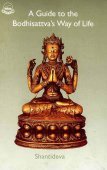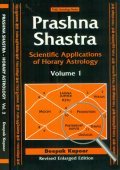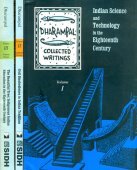Nalanda, Nālandā, Nālanda, Nalamda: 12 definitions
Introduction:
Nalanda means something in Buddhism, Pali, Hinduism, Sanskrit, Jainism, Prakrit, the history of ancient India. If you want to know the exact meaning, history, etymology or English translation of this term then check out the descriptions on this page. Add your comment or reference to a book if you want to contribute to this summary article.
Images (photo gallery)
(+6 more images available)
In Hinduism
Dharmashastra (religious law)
Source: Knowledge Traditions & Practices of India: Education: Systems & PracticesNālandā (नालन्दा) (5th–12th CE) in present-day Bihar, was among the world’s first universities. Taxila University’s different Schools taught many subjects. The Chinese scholars I-tsing (Yijing, left) and Hsüan-tsang (Xuanzang, right) visited Nālandā in the 7th century CE. According to them, the Nālandā university had eight separate halls, 300 apartments, meditation halls and classrooms, all surrounded by lakes and parks. Education was free and there were more than 5,000 students and 1,500 teachers. A hundred lectures were conducted every day and the practice of learning through debates and discussions was highly developed.

Dharmashastra (धर्मशास्त्र, dharmaśāstra) contains the instructions (shastra) regarding religious conduct of livelihood (dharma), ceremonies, jurisprudence (study of law) and more. It is categorized as smriti, an important and authoritative selection of books dealing with the Hindu lifestyle.
In Buddhism
Theravada (major branch of Buddhism)
Source: Pali Kanon: Pali Proper Names1. Nalanda
A town near Rajagaha, (according to Buddhaghosa, DA.i.35) one league away. The Buddha is mentioned as having several times stayed there during his residence in Pavarikas mango grove, and while there he had discussions with Upali Gahapati and Dighatapassi (S.ii.110; M.i.376ff.), with Kevatta (D.i.211ff.), and also several conversations with Asibandhakaputta (S. ii. 311 23).
The Buddha visited Nalanda during his last tour through Magadha, and it was there that Sariputta uttered his lions roar, affirming his faith in the Buddha, shortly before his death (D.ii.81f.; iii.99ff.; S.v.159ff.). The road from Rajagaha to Nalanda passed through Ambalatthika (D.ii.81; Vin.ii.287), and from Nalanda it went on to Pataligama (D.ii.84). Between Rajagaha and Nalanda was situated the Bahuputta cetiya (S.ii.220).
According to the Kevatta Sutta (D.i.211), in the Buddhas time Nalanda was already an influential and prosperous town, thickly populated, though it was not till later that it became the centre of learning for which it afterwards became famous. There is a record in the Samyutta Nikaya (S.iv.322), of the town having been the victim of a severe famine during the Buddhas time.
Nalanda was the residence of Sonnadinna (VvA.144). Nigantha Nataputta is several times mentioned as staying at Nalanda, which was evidently a centre of activity of the Niganthas.
Hsouien Thsang (Beal: op. cit., ii.167f ) gives several explanations of the name Nalanda. One is that it was named after the Naga who lived in a tank in the middle of the mango grove. Another - and accepted by him - is that the Bodhisatta once had his capital here and gave alms without intermission, hence the name.
Nalanda is, in the northern books, given as the name of Sariputtas birthplace (see Nalaka).
Nalanda is identified with the modern Baragaon (CAGI. 537).
2. NalandaA village in the central province of Ceylon. Once Parakkamabahu I. occupied a camp there, and it is several times mentioned in the accounts of his campaigns. Cv.lxx.167, 207; lxxii.169.
1. Nalanda SuttaA conversation between the Buddha and Upaligahapati in Pavarikas mango grove, as to why some beings attain full freedom in this world while others do not. S.iv.110.
2. Nalanda SuttaSariputtas affirmation of faith in the Buddha - there never was, nor is, nor shall be, anyone possessing higher wisdom than the Buddha. S.v.159 f.; cp. D.ii.81 and D.iii.99ff.
Theravāda is a major branch of Buddhism having the the Pali canon (tipitaka) as their canonical literature, which includes the vinaya-pitaka (monastic rules), the sutta-pitaka (Buddhist sermons) and the abhidhamma-pitaka (philosophy and psychology).
In Jainism
General definition (in Jainism)
Source: HereNow4u: Lord Śrī MahāvīraNālandā (नालन्दा) is the name of a village visited by Mahāvīra during his 22nd Year as Kevalī.—To the northeast of Rājagṛha was the city Nālandā. Once, the Lord was sitting in the garden Hastigrāma near a hall named Śeṣa-dravikā. There a monk of the Pārśva tradition, Peḍhālaputra Udaka met Indrabhūti. To resolving a query by Udaka with regard to the vow of non-killing, Indrabhūti said that the one who gives up violence on mobile living beings (or a being with one or two senses) is giving up violence on that being in the present.

Jainism is an Indian religion of Dharma whose doctrine revolves around harmlessness (ahimsa) towards every living being. The two major branches (Digambara and Svetambara) of Jainism stimulate self-control (or, shramana, ‘self-reliance’) and spiritual development through a path of peace for the soul to progess to the ultimate goal.
India history and geography
Source: What is India: Annual Report on Indian Epigraphy (1945-1952)Nalanda (Museum) is an archaeologically important site situated in Bihar (Patna district), known for inscriptions regarding the ancient history of India. For example, at Nalanda there is a stone slab found at Rājgir containing shell characters. There is also a Buddha image which refers to the image as the gift of a paramāpāśikā whose name seems to be given as Garttāka. Also contains the Buddhist formula and the names of Ārya-Sāriputra, etc.
Source: Ancient Buddhist Texts: Geography of Early BuddhismNālandā (नालन्दा) is the name of an ancient locality situated in Majjhimadesa (Middle Country) of ancient India, as recorded in the Pāli Buddhist texts (detailing the geography of ancient India as it was known in to Early Buddhism).—Nālandā is identified with modern Bargaon [Badgaon?], 7 miles to the north-west of Rājgir in the district of Patna. Nālandā acquired an orient-wide celebrity as the most important seat of Buddhist learning and culture in the days of the Guptas from the sixth and seventh centuries onwards. The famous Indrasilā cave may be located in the rugged hill rising immediatety to the west of the Badgaon village.
Nālandā is frequently referred to in early Pāli literature. The Buddha is said to have started once from Rājagaha for Nālandā. In the Saṃyutta Nikāya it is stated that the Buddha once visited Nālandā from Kosala. In the Majjhima Nikāya we read that once the Buddha dwelt in the Pāvārikambavana at Nālandā where he had a discussion with Dīgha Tapassi, a Nigaṇṭha, relating to the Nigaṇṭha doctrines and delivered the Upālisutta. In the Sumaṅgalavilāsinī we find that the distance from Rājagaha to Nālandā was one yojana.

The history of India traces the identification of countries, villages, towns and other regions of India, as well as mythology, zoology, royal dynasties, rulers, tribes, local festivities and traditions and regional languages. Ancient India enjoyed religious freedom and encourages the path of Dharma, a concept common to Buddhism, Hinduism, and Jainism.
Languages of India and abroad
Sanskrit dictionary
Source: DDSA: The practical Sanskrit-English dictionaryNālanda (नालन्द).—A village of great historical importance, near राजगृह (rājagṛha), a place of Bhddh. monastery.
Derivable forms: nālandaḥ (नालन्दः).
Source: Cologne Digital Sanskrit Dictionaries: Edgerton Buddhist Hybrid Sanskrit DictionaryNālanda (नालन्द).—nt. (Pali Nālandā, also Nāla, Nālaka, Nālika), or °dā, name of a village near (one-half yojana according to Mahāvastu) Rājagṛha, birthplace and family home of Śāriputra; also called Nālada according to Avadāna-śataka ii.186.6: rājagṛhasya ardha- yojane nālanda-grāmakaṃ (v.l. nālandaṃ) nāma grāmaṃ Mahāvastu iii.56.6; śrī-nālandā Mahāvyutpatti 4120.
Source: Cologne Digital Sanskrit Dictionaries: Monier-Williams Sanskrit-English DictionaryNālanda (नालन्द):—m. Name of a village near Rāja-gṛha containing a celebrated, [Buddhist literature] monastery, [Monier-Williams’ Buddhism 169 etc.]
Source: DDSA: Paia-sadda-mahannavo; a comprehensive Prakrit Hindi dictionary (S)Nālandā (नालन्दा) in the Sanskrit language is related to the Prakrit word: Ṇālaṃdā.
[Sanskrit to German]
Sanskrit, also spelled संस्कृतम् (saṃskṛtam), is an ancient language of India commonly seen as the grandmother of the Indo-European language family (even English!). Closely allied with Prakrit and Pali, Sanskrit is more exhaustive in both grammar and terms and has the most extensive collection of literature in the world, greatly surpassing its sister-languages Greek and Latin.
Prakrit-English dictionary
Source: DDSA: Paia-sadda-mahannavo; a comprehensive Prakrit Hindi dictionaryṆālaṃdā (णालंदा) in the Prakrit language is related to the Sanskrit word: Nālandā.
Prakrit is an ancient language closely associated with both Pali and Sanskrit. Jain literature is often composed in this language or sub-dialects, such as the Agamas and their commentaries which are written in Ardhamagadhi and Maharashtri Prakrit. The earliest extant texts can be dated to as early as the 4th century BCE although core portions might be older.
See also (Relevant definitions)
Starts with: Nalamdaijja, Nalamdale, Nalandara.
Full-text (+51): Odantapuri, Uddandapura, Nagarjuna, Lahulla, Nalandara, Hattanna, Koddhangulikedara, Shantarakshita, Rahulabhadra, Jayadeva, Abhayankaragupta, Candrakirti, Kusumapura, Kavala, Bahuputraka, Nalada, Phita, Shilabhadra, Mathara, Shakyaprabha.
Relevant text
Search found 64 books and stories containing Nalanda, Nalamda, Ṇālaṃdā, Nālandā, Nālanda, Nāḷanda, Nālānda, Nālāṇḍā, Ṇālandā; (plurals include: Nalandas, Nalamdas, Ṇālaṃdās, Nālandās, Nālandas, Nāḷandas, Nālāndas, Nālāṇḍās, Ṇālandās). You can also click to the full overview containing English textual excerpts. Below are direct links for the most relevant articles:
Formal Education System in Ancient India (by Sushmita Nath)
The Nālandā Vihāra university < [Chapter 3 - Centres of Learning in Vedic and Buddhist Period]
The 7th century Valabhī university < [Chapter 3 - Centres of Learning in Vedic and Buddhist Period]
Subjects studied in the Buddhist Period < [Chapter 5 - Subjects studied in the Vedic and Buddhist period]
Settlement in Early Historic Ganga Plain (by Chirantani Das)
Part 7 - Nalanda’s Rise of a Multi-functional Nodal Centre < [Chapter III - Nālandā: Evidence for rise and progress of the settlement]
Part 3 - Related works on our settlement zones < [Introduction]
The Indian Buddhist Iconography (by Benoytosh Bhattachacharyya)
Figure 189-190 - Emanations of Ratnasambhava: Aparājitā
Figure 17 - Buddha in different Mudrās (Nalanda)
Blue Annals (deb-ther sngon-po) (by George N. Roerich)
Chapter 3 - Nalanda Monastery < [Book 15 - Monastic Systems]
Chapter 4 - The first Kālacakra lineage < [Book 10 - The Kālacakra]
Chapter 12 - Disagreements in (Kālacakra) lineage accounts < [Book 10 - The Kālacakra]
The Great Chronicle of Buddhas (by Ven. Mingun Sayadaw)
Part 10 - The Buddha’s Sojourn at Nāḷanda and the mango grove of Pāvārika < [Chapter 40 - The Buddha Declared the Seven Factors of Non-Decline for Rulers]
Part 27 - The Buddha looked back like a Noble Tusker < [Chapter 40 - The Buddha Declared the Seven Factors of Non-Decline for Rulers]
Part 11 - The Buddha’s Discourse on Morality (sīla) < [Chapter 40 - The Buddha Declared the Seven Factors of Non-Decline for Rulers]
Jain Remains of Ancient Bengal (by Shubha Majumder)
Life History of Tīrthaṅkara Mahāvīra < [Chapter 3 - Historical Background of Jainism in Ancient Bengal]
Tīrthaṅkara Mahāvīra and Jainism in Ancient Bengal < [Chapter 3 - Historical Background of Jainism in Ancient Bengal]
Related products
(+1 more products available)

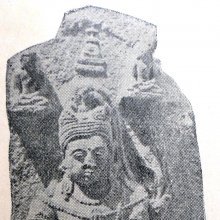

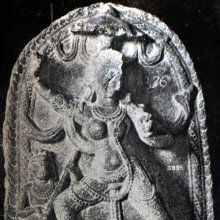
.jpg)
.jpg)
